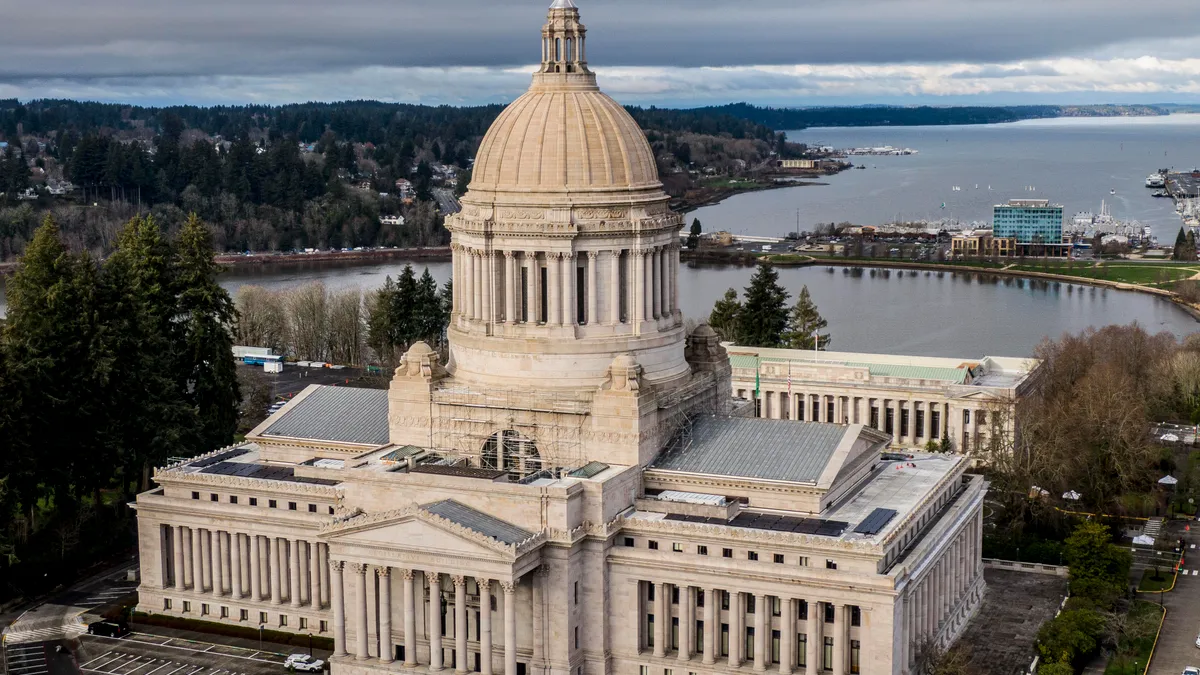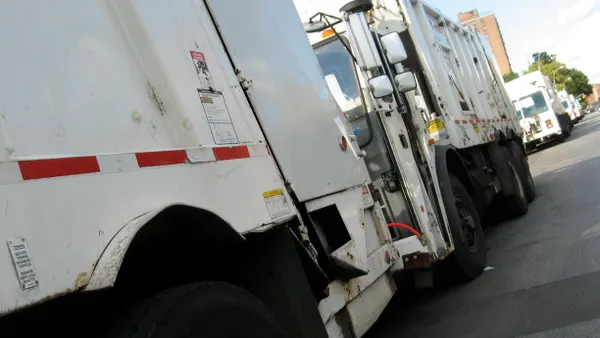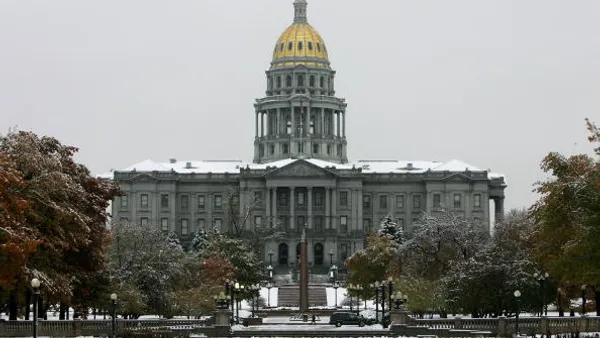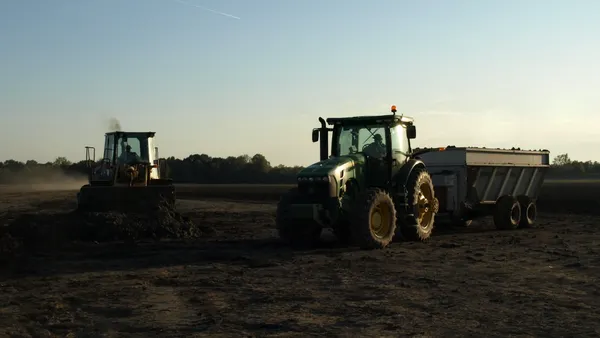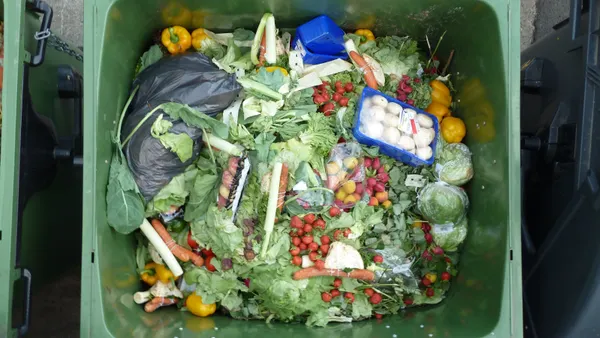Dive Brief:
- The Washington state legislature passed HB 2301 on Tuesday, a bill that enacts new organic material management measures in the state.
- If signed by Gov. Jay Inslee, the bill will direct a division within the state’s Department of Ecology to study food donation and recovery systems infrastructure. It also implements compost collection for single-family homes in "urbanized areas" beginning in 2027 and sets new criteria for food packaging labeled as compostable.
- Washington legislators have set a series of goals over the past five years related to organics diversion. The state is attempting to reduce food waste generation by 50% and divert 75% of organic material from landfills by 2030 and divert 20% of edible food from disposal by 2025.
Dive Insight:
The bill builds on Washington’s Organics Management Law, passed in 2022. That measure set out a phased approach to diverting source-separated organics from businesses, set requirements regarding compost procurement ordinances, set new organics goals and other measures. The law echoed the work of California regulators in their state’s SB 1383.
HB 2301 was celebrated by several organics organizations in the state, including the City of Seattle, Compost Manufacturing Alliance and Washington Organic Recycling Council. The Washington Refuse & Recycling Association testified on the bill and was supportive following amendments from the state Senate Ways and Means Committee.
“HB2301 is a win for hunger relief, the climate, and health of our soils,” Kate Kurtz, board president of WORC, said in a statement. “The bill also gives facilities and haulers the predictability of feedstock generation they need to make decisions about expansion and other capital investments here in Washington.”
The legislation enshrines the U.S. EPA's newly created Wasted Food Scale into state law, emphasizing food waste prevention, donation or upcycling first before prioritizing uses like composting or anaerobic digestion with beneficial use of end products.
To facilitate those priorities, the bill directs the state’s newly created Center for Sustainable Food Management to administer grants that support organics diversion. Those grants can go to governments, nonprofits or private businesses subject to the legislation. The grants must support education, outreach, technical assistance, indoor and outdoor infrastructure, transportation and processing infrastructure or enforcement costs.
The bill would also create a Washington Commodities Donation grant program, which would support existing infrastructure diverting food to donation. Jay Kang, president and CEO of Thurston County Food Bank, said in a statement that the bill would empower organizations like his to partner with grocery stores and local growers, “creating a robust system to increase donations to food banks.”
Municipalities would also be subject to new regulations regarding organics management. Starting in 2026, businesses that produce 96 gallons of organics per week must arrange for organic materials management service, tightening requirements for businesses originally set in a 2022 law.
Local governments also must begin providing source-separated organics collection to all single-family residents on April 27, though not multifamily building residents. The collection programs would be mandatory for customers three years later, unless they can certify that they're managing their organics sustainably on their own.
“It will be great when more of our residents are separating their food scraps and sending them to composting or other technologies such as anaerobic digestion or even vermiculture by worms,” Heather Trim, executive director of Zero Waste Washington, said in a statement.
Compostable packaging manufacturers would also be required to meet one of several compostability standards set by third-party organizations. The bill also sets strict rules regarding what can be labeled "home compostable," and directs the Department of Ecology to develop a report on compostables technology for produce stickers.
Editor’s note: This story has been updated to reflect the latest position of the Washington Refuse & Recycling Association.



